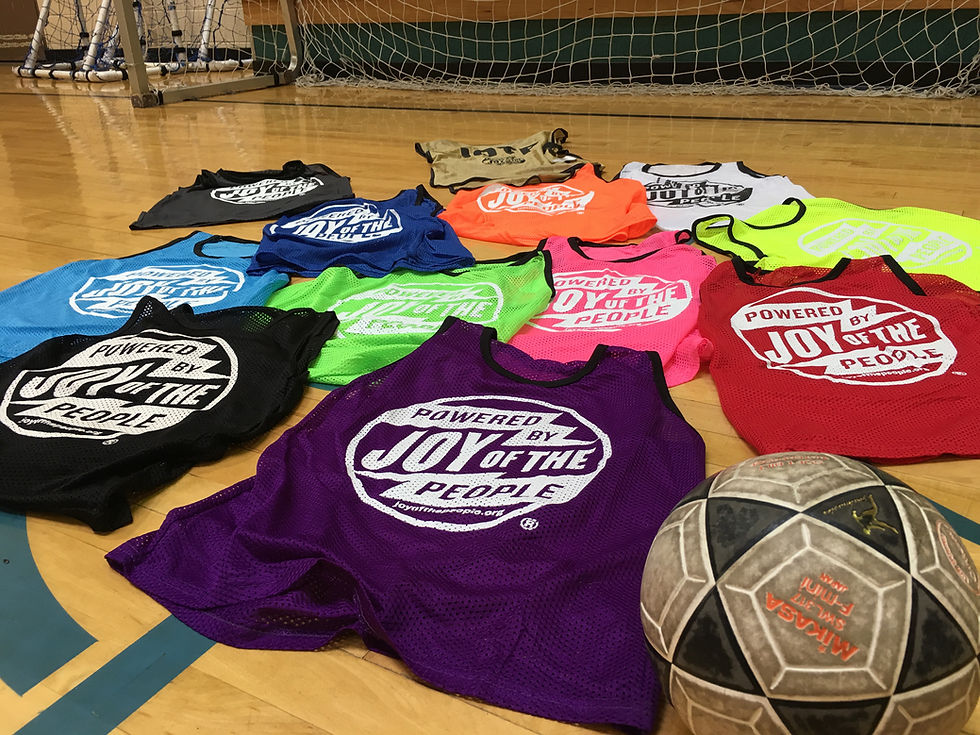THE PLAY INSTINCT
- ted4637
- Apr 25, 2025
- 3 min read

You must make friends before you can build skills (The myth of competitiveness.)
At Park "A" There are 4 kids.
One of the kids has a "killer instinct." So he dominates and wins without prejudice without empathy (he has a killer instinct; after all, he can't help himself.) One of the other kids at the park does not enjoy this, so he does not return the next day.
Our "KI" kid figures that this is 'good,' this child quitting makes the entire group stronger--no baggage holding us back, only the strong survive. "Seek discomfort," he might say to the child that quit. "You can't improve unless you push out of your comfort zone."
Then, the following day, someone else quits until our 'killer instinct' friend is all by himself with no one to play with, no way to get better, and worst of all--no way to win. He never gets better, he wonders what happened to his dream?
W. D. Hamiltion, the famous eveloutionar biologist also wondered. If evolution was truly dog-eat-dog, then why were people nice?
He not only figured it out he created a math equation to express it:
R x B > C
R (relatedness) multiplied by B (benefits) must be greater than C (costs)
Hamilton showed how friends and family must come first. How we invest in these freinds (relatedness) with the benefit that one day they will return the favor.
In our 'KI' kid is a good soccer player--he can dribble, shoot, scrore goals--but he lacks the most important skill of all--altruism.
Homo Sapiens were just another species on the planet until they mastered cooperation. Humans got to the top of the food chain--not with a killer instinct--but by figuring out how to work together.
At Park "B," there are also 4 kids, but one of the kids is selfish. He wants to play soccer; selfishly, he does not want it to stop. Being selfish, he wants to improve, so he tries his best. He dribbles, hogs the ball, scores, and learns--but not too much.
Being selfish, he tries to do less--because he does not wish to tire out. Being selfish, he never wants this to end, so he befriends his cohort; he makes sure they go home happy and ready to return tomorrow.
Fast forward 10 years to the big tryout. Place our Killer Instinct child of Park "A" vs the "Cooperation" child of Park "B" Who makes the team? Who wins? Competition or cooperation? Make friends, then make skills
1. The Myth of the "Killer Instinct"
The "Killer Instinct" (KI) kid represents the flawed belief that dominance and ruthlessness lead to long-term success. While this might yield short-term wins, it ultimately isolates the individual, destroying the very ecosystem (the group of peers) needed for growth.
Lesson: Success isn’t just about individual skill—it’s about sustaining the environment that allows skill to develop. If you drive everyone away, you have no one to learn from, compete with, or celebrate with.
2. Hamilton’s Rule (R x B > C) and the Power of Altruism
W.D. Hamilton’s equation elegantly explains why cooperation is evolutionarily advantageous. Investing in relationships (relatedness) with the expectation of mutual benefit (benefits > costs) is how societies—and individuals—thrive.
Lesson: The "selfish" kid in Park B isn’t actually selfish in the negative sense—he’s strategically cooperative. He ensures others enjoy the game so they keep returning, which in turn benefits him long-term.
3. The Long Game: Cooperation Wins
The KI kid burns out alone, while the cooperative kid builds a network, refines his skills sustainably, and—crucially—ensures others want him to succeed. By the time of the tryout, he’s not just skilled; he’s a team player, which is invaluable in group dynamics (sports, work, life).
Lesson: True mastery isn’t just about being the best—it’s about being the best for others. Teams pick players who elevate everyone, not just themselves.
4. Human Evolution’s Secret: Cooperation
Homo sapiens rose to dominance through collaboration (shared knowledge, division of labor, trust). The same applies to modern success—whether in sports, business, or art.
Lesson: The "killer instinct" is overrated. The "collaborator’s instinct" is what endures.
5. The Playchronicles as a Metaphor
This isn’t just about kids playing soccer—it’s a blueprint for life. Replace "park" with "workplace," "team," or "community," and the lesson holds: Burn bridges, and you’ll have nowhere to go. Build them, and you’ll go far.
At Joy of the People (JOTP), we don’t just teach kids to play—we teach them to love playing, together. Because the real secret to greatness isn’t a "killer instinct"—it’s kindness and cooperation. We nurture skills through joy, not fear; through friendship, not domination. The result? Kids who stick with the game, support each other, and—without even realizing it—become the kind of players coaches dream of. Bring them to JOTP, where we grow athletes who last longer, play smarter, and win bigger—because they never have to win alone.
.png)







Comments